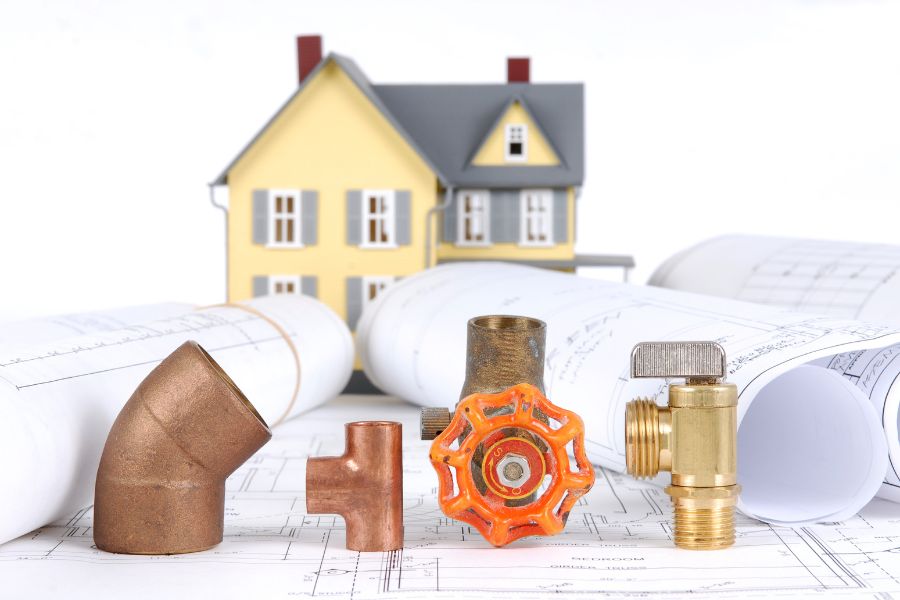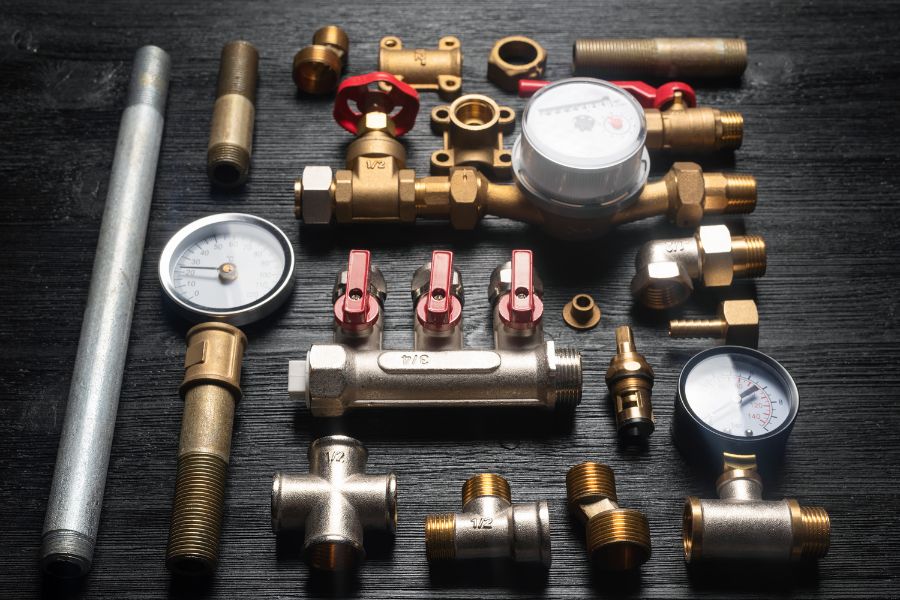As such, choosing the right home water filter and advanced water treatment system is of utmost importance.

Plumbing Services in Alexandria VA: Your Trusted Solution
- Activated Carbon Filters: These are most effective in removing organic compounds, chlorine and improve taste or odor problems.
- Reverse Osmosis: This filtration method is effective in eliminating various contaminants such as lead, fluoride, and other dissolved solids.
- Ion Exchange Filters
Choosing the Right Plumbing Contractors in Alexandria VA
Different households have distinct needs when it comes to water filtration.
- Type of Contaminants: Get your water tested to identify the present contaminants which will help choose a filter that can effectively remove those impurities.
- Water Usage: This influences the size and type of filter required; larger households generally need larger or whole-house systems.
- Budget: Costs vary across different models depending on their functionality, installation, maintenance costs etc.
Advanced Water Treatment Systems
When standard filtration isn’t enough, an advanced water treatment system could be necessary. These include ultraviolet (UV) disinfection systems that destroy microbiological contaminants or distillation systems that can remove heavy metals along with other contaminants.
When choosing an advanced system, consider your specific needs based on the quality of your current source of water. It’s also important to factor in installation and maintenance costs as these systems can be more expensive than standard filters.
With the right system, you can be assured of reliable access to safe, clean drinking water. Remember to regularly replace filters as recommended by the manufacturer to maintain the system’s effectiveness.
Remember, choosing a water filtration and treatment system is an investment in your health. It’s essential to select a system that best suits your specific needs and guarantees safe, clean water for you and your loved ones.
Water is a fundamental requirement for all life, and its quality significantly impacts our health.
The Role of Safe Drinking Water in Health Promotion
- Physical Health: Regular consumption of clean water keeps your body hydrated, aids digestion, keeps skin healthy, and helps in nutrient absorption. It also plays a crucial role in the smooth functioning of kidneys by helping flush out toxins.
- Disease Prevention: Contaminated water is a common carrier for harmful microorganisms and toxic substances that can cause severe diseases like cholera, diarrhoea, dysentery and typhoid. By ensuring that our drinking water is safe, we can prevent such diseases.
- Cognitive Function: Proper hydration facilitates cognitive function. Studies have shown a correlation between regular intake of clean water and improved memory, focus, and alertness.
The Threats to Safe Drinking Water
Unfortunately, not all tap water is safe for consumption without treatment.
- Microbial Contamination: This includes bacteria (e. g. , E. coli), viruses (e. g. , Norovirus), parasites (e. g. , Giardia) which can cause gastrointestinal illnesses.
- Chemical Contamination: This could stem from natural sources or human activity such as mining or farming.
- Aging Infrastructure: Lead pipes or corroded plumbing systems can contaminate the drinking water.
- Environmental Pollution: Industrial waste discharge or runoff from farms may taint sources of drinking water.
The World Health Organization (WHO) has set guidelines for drinking-water quality.
| Parameters | Guidelines |
| pH | 6.5-8.5 |
| Turbidity | <5 NTU |
| Color | <15 TCU |
| Taste & Odor | Unobjectionable |
| E.coli or thermo-tolerant Coliform bacteria | None detected per 100 ml |
Improving Drinking Water Safety
- Regular Testing: Test your water periodically to understand what contaminants are present and in what quantity.
- Using Water Filters: A quality water filter can remove many common contaminants, making your tap water safe for consumption.
- Boiling Water: Boiling can kill most of the harmful microbes present in the water. However, it is ineffective against chemical pollutants.
Making sure you have access to clean, potable water not only safeguards your health but also contributes significantly to overall wellbeing and quality of life.
When it comes to water filters, many people operate under the assumption that one model is as good as another. However, this could not be further from the truth. Much like any other product on the market today, there are significant differences in performance, quality, and price between different water filter models. Understanding these disparities is crucial in making an informed purchase decision.
Types of Water Filters
To begin with, not all water filters serve the same purpose.
- Activated Carbon Filters: These filters are often used in pitcher filters and refrigerator dispensers. They work by absorbing impurities from the water but don’t remove all contaminants.
- Reverse Osmosis Systems: This type offers a more advanced level of filtration. They can remove contaminants such as arsenic, nitrates, sodium, copper and lead.
- Distillation Units: These systems heat water to boiling point and then collect the steam that condenses. However, they can be slow and require significant energy.
- UV Filters: These use ultraviolet radiation to treat water. They are ideal for eliminating bacteria and viruses but do not remove chemicals.
Filtration Performance
The performance of a filter primarily depends on its type and brand quality. Some brands may claim to effectively eliminate all contaminants from your tap water when in reality; they only reduce levels of certain substances while leaving others untouched.
For instance, while activated carbon filters excel at removing chlorine and improving taste and odor, they aren’t very effective against lead or fluoride. On the other hand, reverse osmosis filters can get rid of fluoride and lead but fail to remove volatile organic compounds (VOCs) or certain pesticides.
Cost Differences
The cost of a filtration system is another area where inequalities become evident.
- The type of filter
- The complexity of the installation process
- Whether the system contains additional features (like a water softener)
In general, you can expect to pay anywhere from $20 for a basic faucet attachment to upwards of $1000 for a whole house system.
Lifespan and Maintenance
The lifespan and maintenance requirements of different filters also vary. Some might need their cartridges replaced every few months, while others could last for years without needing any attention. The costs involved with upkeep should be taken into consideration as well.
In summary, not all water filters are created equal. It’s critical to research and understand the inequalities between various models before making a purchase. By considering the types of contaminants in your water, your budget, and how much upkeep you’re willing to do, you can select a filter that best fits your needs.
The Centers for Disease Control and Prevention (CDC) offers a wealth of information to help homeowners ensure the safety and health of their home water supplies. As a respected authority in public health, the CDC provides a range of materials that you can use to guarantee healthy water at home.
CDC’s Water-Related Diseases and Contaminants
One of the key resources that the CDC provides is its comprehensive list of water-related diseases and contaminants. This catalogue offers a detailed guide to various diseases and contaminants that could affect your water supply. This includes bacteria, viruses, parasites, chemicals, and other substances that could potentially be harmful.
For each listed disease or contaminant, the CDC provides further information such as:
- Its health effects
- How it enters your water supply
- How you can prevent it from contaminating your water
By familiarising yourself with these potential threats, you can better protect your household from them.
The Healthy Housing Reference Manual
The CDC also offers the Healthy Housing Reference Manual which contains a chapter devoted to water supply and plumbing systems.
- Different types of public and private drinking-water sources
- The basics of home plumbing systems
- Typical issues related to plumbing and how to address them
This manual serves as an invaluable guide for homeowners seeking to understand more about their home’s water system.
Emergency Water Supply Planning Guide for Hospitals and Health Care Facilities
Another valuable material provided by the CDC is its Emergency Water Supply Planning Guide for Hospitals and Health Care Facilities. While this resource is primarily intended for healthcare facilities, homeowners can also derive useful guidance from it especially when preparing for emergencies.
Some insights homeowners could glean include:
- How to store emergency water supplies
- The importance of having back-up power in case your regular supply is interrupted
- How long stored water remains safe to drink
CDC’s Private Well Program
For homeowners who source their water from private wells, the CDC’s Private Well Program provides a variety of resources to help maintain the safety and health of their water supply. This includes information on regular testing, understanding test results, and dealing with potential contamination issues.
The CDC’s effort towards ensuring healthy water at home is commendable and as homeowners, it is advisable to utilize these materials in order to safeguard the health of our households. The various resources provided by the CDC can steer you towards achieving safe, clean and healthy water in your homes.
In the quest for finding effective water treatment solutions, an array of resources is available. These resources can be found through various partner materials and organizations who aim to provide safe, clean water to homes and communities. This article will guide you on how to navigate through these materials effectively.
Locating a Reliable Plumber in Alexandria VA
- World Health Organization (WHO): They provide guidelines on drinking-water quality, which are used worldwide as a basis for regulation and standard setting.
- Water Quality Association (WQA): They offer educational materials on different water treatment technologies and their effectiveness.
- American Water Works Association (AWWA): They provide manuals on various aspects of water supply and treatment.
It’s essential to familiarize yourself with these organizations as their materials can be instrumental in your journey towards effective water treatment solutions.
Your Guide to Choosing an Alexandria VA Plumber
Navigating through these materials can seem overwhelming due to a wealth of information available.
- Identify your requirements: Knowing what you need is the first step towards finding a solution. Based on your requirements, sift through the resources available that align with your needs.
- Understand the terminology: Familiarize yourself with common terms used in these materials like contamination, chlorination, filtration etc.
- Look for reviews and testimonials: It’s always beneficial to read about experiences of those who have already used specific solutions or products.
- Compare different solutions: Don’t limit yourself to one resource or product; instead, compare different options available based on factors like cost-effectiveness, ease-of-use etc.
Understanding Plumbing in Alexandria VA
Many organizations offer online tools that can aid in understanding and choosing water treatment solutions better.
For instance, WQA’s ‘Find Water Treatment Providers’ tool lets you find certified water treatment providers near your location. Similarly, WHO’s ‘Water Safety Planning’ tool provides a step-by-step guide for improving the safety of drinking water supplies.
Working with Top Plumbing Companies in Alexandria VA
Lastly, collaborating with experts in the field can be a game-changer while navigating through partner materials. Reach out to local water supply companies, environmental consultants or health departments who can provide you with a more in-depth understanding of the resources available and help tailor solutions according to your specific needs.
By effectively navigating through other partner materials and using them to your advantage, you can ensure that the best possible water treatment solutions are implemented for the safety and health of your household or community. Remember, every drop counts when it comes to the quality of water we consume.
- Finding the Best Plumbers in Alexandria VA for Your Plumbing Needs
- Essential Guide to Choosing Plumbers in Alexandria VA for Premier Alexandria VA Plumbing Solutions and Home Water Filters
- Discovering the Best Plumbers in Manassas VA
- Discovering the Best Plumbers in Manassas VA: A Comprehensive Guide
- Exploring the Best Plumbers in Manassas VA: An In-depth Guide
